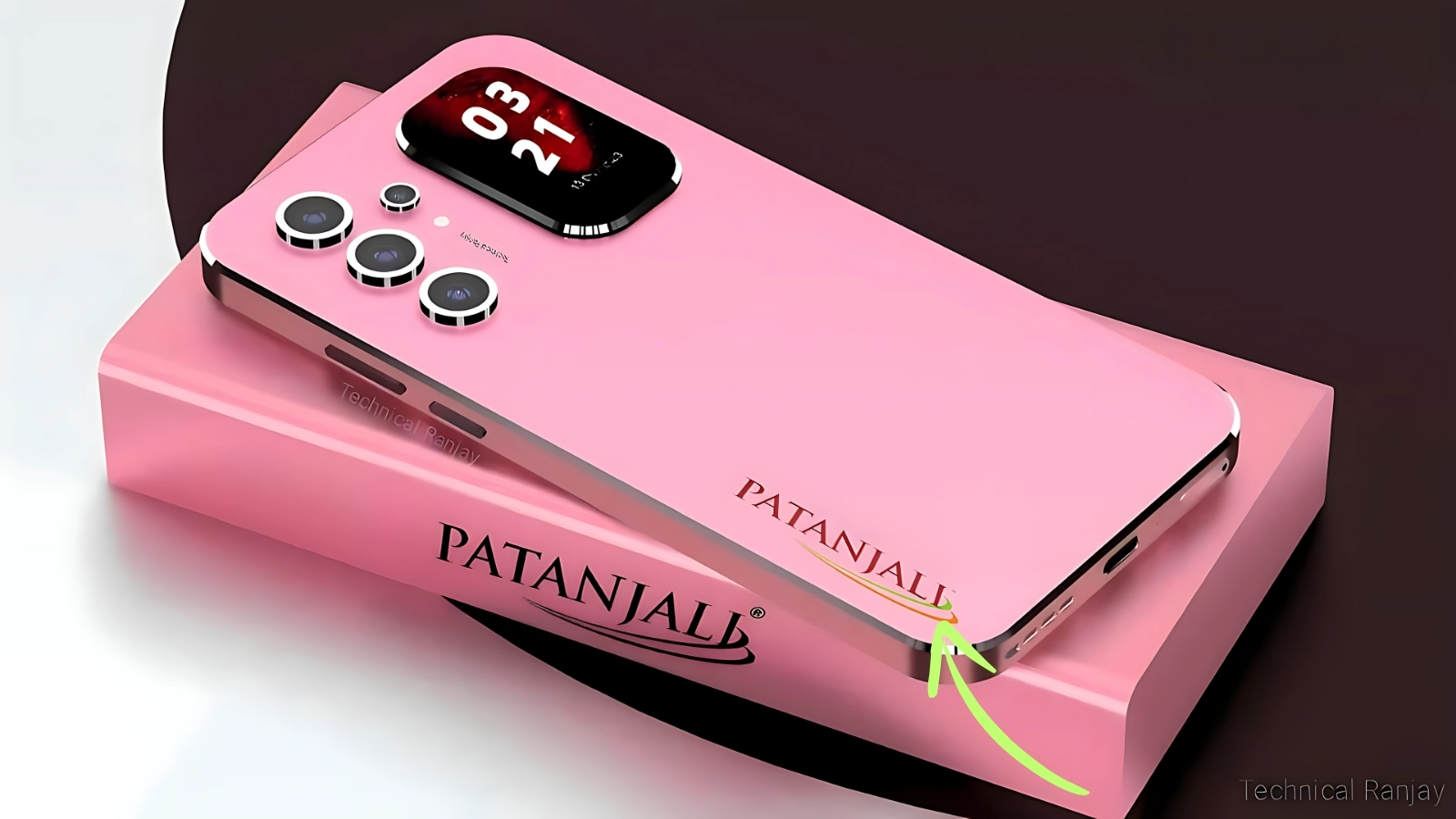The digital landscape has been abuzz with speculative reports about Patanjali Ayurved’s potential entry into the smartphone market, with various online sources claiming the development of a Patanjali 5G smartphone featuring impressive specifications and competitive pricing.
While these reports have captured considerable attention among Indian tech enthusiasts, the reality appears far more complex, with no official confirmation from Patanjali regarding any smartphone development initiatives.
Understanding the Speculation Phenomenon
The widespread speculation about a Patanjali smartphone reflects the brand’s significant cultural impact and the Indian market’s appetite for indigenous technology solutions.
Reports across various platforms have suggested specifications ranging from 233MP cameras to 6G connectivity, pricing claims between ₹25,000 to ₹33,000, and revolutionary features like solar charging and herbal smartphone construction that would supposedly make devices virus and bacteria-free.
These speculative reports often present elaborate technical specifications and launch timelines without credible sources or official validation. The pattern suggests content creation driven by the popularity of both Patanjali as a brand and smartphone-related search topics, rather than genuine product development announcements from the company.
The absence of official communication from Patanjali’s verified channels, corporate website, or recognized media announcements raises significant questions about the authenticity of these reports.
Industry observers note that major product launches typically involve substantial marketing campaigns, regulatory approvals, and official press releases that have not materialized for any supposed Patanjali smartphone.
The Appeal of Indigenous Technology Solutions
The enthusiasm surrounding potential Patanjali smartphone reports reflects deeper currents in Indian consumer sentiment toward self-reliance and indigenous innovation.
The concept of a smartphone from a trusted Indian brand like Patanjali resonates with consumers who prioritize supporting domestic enterprises and reducing dependence on international technology companies.
Patanjali’s success in transforming India’s FMCG landscape through affordable, quality products has created consumer goodwill that extends beyond traditional product categories.
The brand’s association with natural wellness, cultural values, and Indian traditions creates an emotional connection that makes the prospect of Patanjali-branded technology appealing to many consumers.
The timing of these speculative reports coincides with India’s growing emphasis on technological self-reliance and the success of indigenous companies in various sectors.
This environment creates fertile ground for speculation about familiar brands expanding into new technology domains, regardless of actual product development activities.
Technical Challenges and Market Realities
The smartphone industry involves complex supply chains, substantial research and development investments, regulatory compliance requirements, and technical expertise that extends far beyond Patanjali’s current core competencies in ayurvedic products and natural wellness solutions.
Successful smartphone development requires partnerships with chipset manufacturers, display suppliers, camera module producers, and software developers.
Establishing a competitive smartphone business involves challenges including obtaining necessary telecommunications certifications, building distribution networks capable of handling electronic products, providing technical support infrastructure, and competing against established players with decades of experience and substantial resources.
The technical specifications mentioned in speculative reports often include features that would require cutting-edge technology and significant investments that seem inconsistent with realistic market entry strategies for companies without prior smartphone development experience.
Regulatory and Certification Requirements
Smartphone manufacturing and distribution in India involves numerous regulatory requirements including Bureau of Indian Standards (BIS) certification, Telecommunications Engineering Centre (TEC) approval, and compliance with various environmental and safety standards. These processes typically require months of testing and validation before products can be legally sold in the Indian market.
The absence of any regulatory filings or certification applications associated with Patanjali smartphone products further suggests that these speculative reports lack factual foundation. Legitimate smartphone development would necessarily involve visible regulatory processes that have not materialized.
Brand Strategy and Core Business Focus
Patanjali’s actual business strategy appears focused on expanding its successful ayurvedic and natural products portfolio, with recent initiatives in food processing, personal care, and wellness services.
The company’s verified communications and official announcements center on these core business areas rather than technology hardware development.

The brand’s strength lies in understanding Indian consumer preferences for natural, affordable products that align with traditional values. Expanding into smartphone manufacturing would represent a significant departure from this proven strategy and core competency areas.
Industry analysts suggest that Patanjali’s resources and expertise would be better utilized in strengthening its position within existing product categories rather than entering highly competitive technology hardware markets where the company lacks established capabilities.
Consumer Awareness and Digital Literacy
The proliferation of unverified reports about Patanjali smartphones highlights the importance of critical evaluation of online information sources. Consumers seeking accurate product information should rely on official brand communications, verified news sources, and regulatory filings rather than speculative content from unverified platforms.
The digital ecosystem’s tendency to amplify engaging content regardless of factual accuracy creates environments where speculation can be mistaken for legitimate product announcements.
This phenomenon affects not only technology products but various consumer categories where emotional brand connections exist.
Market Impact of Speculation
While no official Patanjali smartphone exists, the speculation surrounding such a product demonstrates the potential market appetite for indigenous technology solutions that align with Indian cultural values. This interest could influence other companies to develop products that specifically address Indian consumer preferences for trusted, affordable technology solutions.
Electric Maruti Alto will be launch soon with 450km range – looks is fabulous
The discussion generated by these speculative reports provides insights into consumer desires for technology products that reflect Indian identity and values, even if the specific products discussed remain fictitious.
Patanjali 5G Smartphone is come with 250MP Camera
Current evidence suggests that reports about Patanjali 5G smartphones are largely speculative and lack official validation from the company.
Consumers interested in indigenous smartphone options should focus on verified products from established manufacturers while remaining skeptical of unconfirmed reports that lack credible sources.
The genuine appeal of Indian-made technology solutions continues to drive both consumer interest and business opportunities, but distinguishing between legitimate developments and speculative content remains essential for informed decision-making.
Until Patanjali officially announces smartphone development initiatives through verified channels, these reports should be treated as unsubstantiated speculation rather than factual product information.